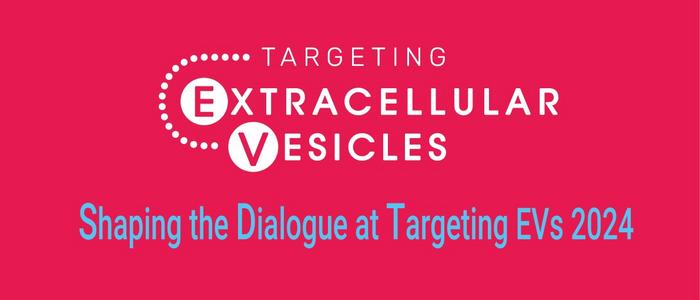The World Mitochondria Society (WMS) and the International Society of Microbiota (ISM) are proud to announce the First World Conference on Targeting Extracellular Vesicles (EVs), to be held on October 17-18, 2024, at the Corinthia Palace in Malta. This conference will bring together leading experts to explore the latest advancements in extracellular vesicle research, with a particular focus on their interactions with mitochondria and microbiota, setting the stage for the future of EV-based medicine.
The World Mitochondria Society (WMS) and the International Society of Microbiota (ISM) are proud to announce the First World Conference on Targeting Extracellular Vesicles (EVs), to be held on October 17-18, 2024, at the Corinthia Palace in Malta. This conference will bring together leading experts to explore the latest advancements in extracellular vesicle research, with a particular focus on their interactions with mitochondria and microbiota, setting the stage for the future of EV-based medicine.
Engage in Strategic Discussions with Global Experts
Participants will have the unique opportunity to engage in strategic discussions with international speakers following their presentations. These in-depth debates and Q&A sessions are designed to address the most pressing and impactful issues in EV research and application, fostering collaboration and innovation.
Key Conference Themes and Topics
- Standardization and Protocols.
- Overcoming challenges in standardizing EVs for research and clinical use.
- Developing standardized protocols for EV and exosome studies to enhance reproducibility and reliability.
- Targeting and Delivery.
Standardization and Protocols
- Challenges in standardizing EVs for research and clinical use.
- Efforts to develop standardized protocols for EV and exosome studies.
Targeting and Delivery
- Methods to target EVs to specific tissues.
- Enhancing targeting efficiency through surface modifications and the role of ligands and receptors.
- Impact of tissue microenvironments on EV uptake.
Mitochondrial Function and Therapeutic Applications
- EVs in optimizing mitochondrial function and spreading mitochondrial damage.
- Controlling mitochondrial content in EVs and their use as drug vehicles.
Feasibility and Challenges
- Obstacles in using EVs as reliable biomarkers and isolating disease-specific EVs.
Technological Advancements
- High-throughput technologies and multi-omics approaches for improving EVs as diagnostic tools.
Biological and Therapeutic Uses
- Selecting cells for EV therapy, key components of EVs, and potential biomarkers from microbiota-derived EVs.
Microbiota and Microbial Interactions
- New therapeutic strategies from microbiota-derived EVs, their role in microbial-host communication, and addressing antimicrobial resistance.
Novel Hypotheses
- Could EVs revolutionize communication between mitochondria, human cells, and the microbiome?
Speakers and Topics
– Role of Stem Cell-Derived Extracellular Vesicles to Promote Successful Aging – Consuelo Borrás, University of Valencia, Spain
– Extracellular Vesicle Release of Mitochondria in Response to Lysosomal Dysfunction – Åsa B. Gustafsson, University of California San Diego, USA
– Liposomes & Exosomes: Lessons & Perspectives – Volkmar Weissig, Midwestern University, College of Pharmacy Glendale, USA
– Delivery of Mitochondria-Containing EVs to the Blood-Brain Barrier – Devika S. Manickam, Duquesne University, USA
– The Role of Mitovesicles in the Brain with Mitochondrial Dysfunction – Efrat Levy, NYU Grossman School of Medicine, USA
– Microbiota-Derived Extracellular Vesicles in Maternal-Fetal Communication: What We Know? – Justus Reunanen, University of Oulu, Finland
– Engineering Exosomes for Precise Mitochondrial Targeting in Brain Cells: Expanding the Frontiers of Cellular Communication and Therapeutics – Lanrong Bi, Michigan Technological University, USA
– Mitochondrial DAMPs in EVs: Triggering Early Neuroinflammation in Neurodegeneration – Carla Lopes, University of Coimbra, Portugal
– Therapeutic Applications of Microbial Extracellular Vesicles – Steven Jay, University of Maryland, USA
– Targeting central regulation of obesity with EVs: Breakthrough Approach Nature Metabolism – Ramaroson Andriantsitohaina, University of Montpellier, France
– Exploring the Capabilities of Exosomes from Muscle-Derived Mesenchymal Stem Cells: Insights into Immunomodulation and Mitochondrial Transfer – Didier Serteyn, Université de Liège, Belgium
– Cancer-related Extracellular Vesicles in relation to Mitochondria, Microbiota and More – Lorraine O’Driscoll, Trinity College Dublin and Trinity St. James’s Cancer Institute, Ireland
– Bioinspired, Fully Synthetic Extracellular Vesicles to Optimize Wound Healing – Joachim Pius Spatz, University of Heidelberg, Germany
– Modulation of Phage-Microbe interactions and Antimicrobial Resistance by Bacterial Extracellular Vesicles – Meta Kuehn, Duke University, USA
– Lactobacilli Extracellular Vesicles: Potential Postbiotics to Support the Vaginal Microbiota Homeostasis – Carola Parolin, University of Bologna, Italy
– Gut-Microbiome Derived Extracellular Vesicles in Cancer – Surbhi Mishra, University of Oulu, Finland
– The gut microbe-derived extracellular vesicles (GMEVs)-mitochondria axis in mental disorders: Strengths and weaknesses of new studies – Seyed Davar Siadat, Pasteur Institute of Iran, Iran
For further details about the congress, including speakers, program, attendees, registration and abstract submission, please visit the website: www.targeting-exosomes.com.





